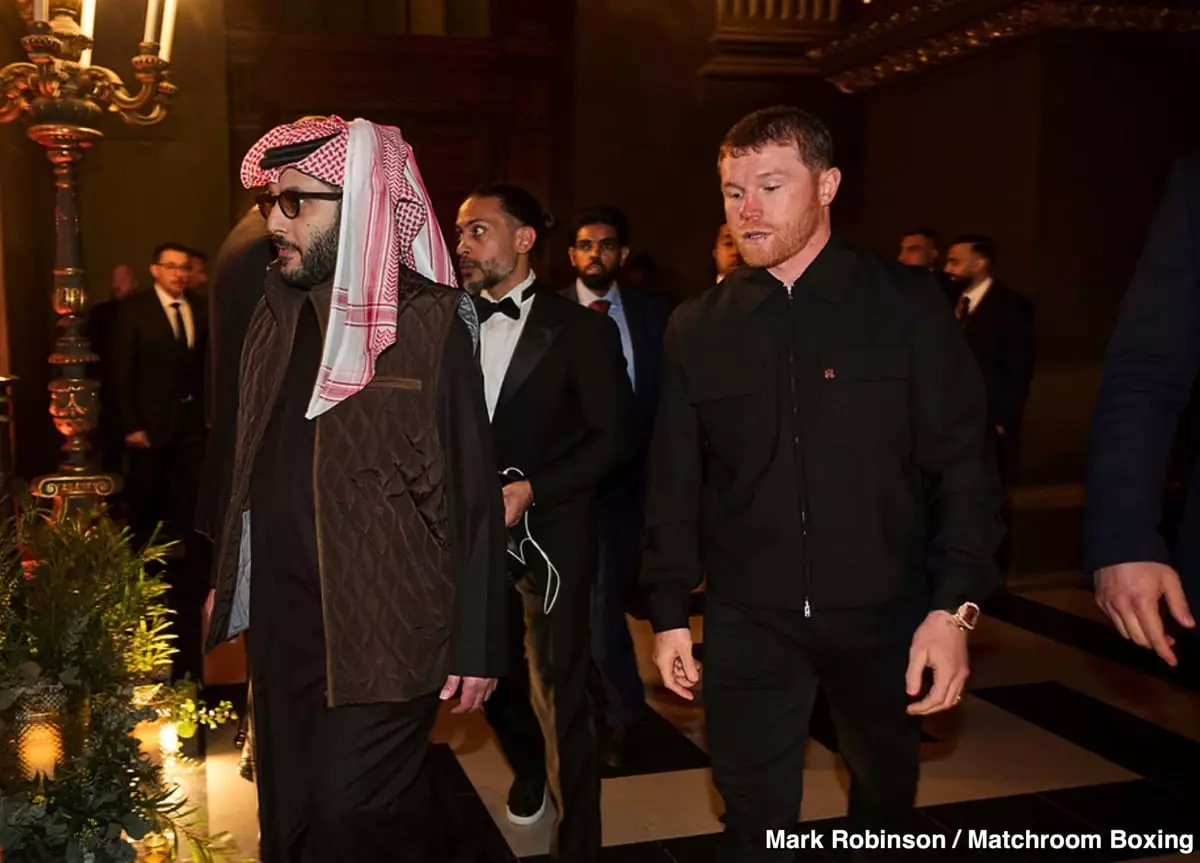The world of boxing has long been rife with rivalries, controversies, and evolving narratives, but few create as much attention as the clash between Oscar De La Hoya and Canelo Alvarez. With the recent announcement of Alvarez’s four-fight agreement with Turki Al-Sheikh, De La Hoya seized the opportunity to brand the current boxing landscape as a “diva era.” This commentary not only reflects De La Hoya’s personal grievances but serves as a broader critique of modern boxing—where financial gain often eclipses fan engagement and genuine rivalry.
De La Hoya’s central argument revolves around his perception of Alvarez as a “money-hungry fighter.” By opting out of a face-off against social media sensation Jake Paul and instead signing with Turki Al-Sheikh, Alvarez has seemingly prioritized profit over the sport’s integrity. De La Hoya’s choice of words—“zero loyalty” and “filling his bank account”—reveals a deeper sentiment: a betrayal of the fans who have passionately supported Alvarez throughout his career. Instead of facing challengers who could elevate the sport, Canelo appears more focused on lucrative deals, potentially alienating his audience in the process.
De La Hoya’s disappointment resonates particularly during significant fight weekends, such as Cinco de Mayo. His criticism of Alvarez’s fight selection, choosing William Scull—a less established opponent—over rising star David Benavidez is indicative of a broader worry: that boxing’s future may be dictated less by legendary rivalries and more by financial incentives. Alvarez’s decision reflects a trend where top fighters are increasingly selective, leading to missed opportunities for thrilling matchups that fans crave.
Another layer of De La Hoya’s critique involves the apparent fear Alvarez has regarding potential defeat. By avoiding a fight against Benavidez—a fighter coming off a significant victory—Alvarez exemplifies a reactive approach rather than the assertive spirit expected of a champion. Fans discern that there may be a hesitance to engage in high-stakes bouts that could tarnish Alvarez’s legacy. It raises an important question: is the current generation of boxers more afraid of losing than eager to prove themselves?
De La Hoya’s claim that Canelo’s repeated excuses are mere “excuses” reflects a growing sentiment among fans that today’s elite athletes lack the fortitude of past generations. The notion that a champion would dodge potent challengers due to bad blood reflects a significant shift in mentality. What was once viewed as the hallmark of a true champion—seeking out challenging confrontations—seems to be overshadowed by the weighing concerns of financial stability and marketability.
Oscar De La Hoya lamentably positions Canelo as the root cause of what he dubs the “diva era” of boxing. Comparatively, he references the era of legends like Julio César Chávez, who epitomized the warrior spirit and displayed courage in the ring. In an increasingly commercialized sport, De La Hoya’s nostalgic longing for a time when fighters pursued greatness over paychecks becomes glaringly evident.
The implications of this transition manifest in how modern athletes conduct themselves and the battles they choose. While financial negotiations and branding strategies are essential in today’s world, they must not overshadow the sport’s competitive essence. De La Hoya’s assertion that real champions elevate their opponents speaks volumes; a true star can create an environment where fellow fighters ascend alongside them, rather than contributing to a climate of cautious matchmaking.
Furthermore, the criticism extends to Alvarez’s recent opponents and their perceived impact on the sport. De La Hoya’s jab at Edgar Berlanga’s lackluster performance in their match serves to highlight a worrying trend: if stars dominate they’re selection of challengers, it creates an uninspiring environment for fans looking for compelling storylines and dramatic rivalries. The division of boxing into commercial spectacles devoid of genuine competition mirrors De La Hoya’s concerns about the future of the sport.
As Alvarez continues to navigate the complexities of professional boxing, he must grapple with his legacy’s potential inadequacies. The essence of De La Hoya’s sentiment is clear: financial aspirations should not eclipse the fundamental duty of champions to engage in thrilling battles that resonate with fans. If he does not address the emerging criticisms, Alvarez risks becoming a footnote in boxing history, overshadowed by the greats who defined the sport through rivalries, challenges, and undeniable passion for the fight.
Oscar De La Hoya’s vehement criticism of Canelo Alvarez provides a pivotal commentary on the current state of boxing. As the discussion unfolds, it becomes apparent that the true challenge lies in balancing financial success with the honor and integrity of the sport. Only time will tell whether Alvarez will rise to meet this challenge or further exemplify the pitfalls of the diva era.


Leave a Reply